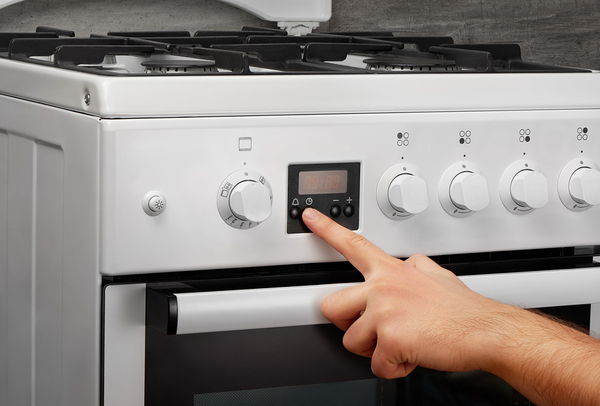_600x.jpg)
Imagine that you’ve just moved into your new home. It’s time to cook dinner, but the range won’t heat up. Or you need a cold drink, but the refrigerator is stale and stuffy inside.
The kitchen is one of the busiest rooms in most homes. With a home inspection, you’ll have a much better understanding of what you’re about to buy.
Here are some of the most common kitchen defects that home inspectors find:
#1: Vents That Lead to Nowhere
The kitchen range vent should extract the steam and capture some of the airborne cooking grease. At least in a perfect world. But in many kitchens, the range vent is a decorative-only feature. Just because it’s there doesn’t mean it works.
Your home inspector will check the range vent to learn whether or not the fan switches on. Even if it does, it still might not be functional. So your inspector will also look for evidence that it vents outside the house as it should.
#2: Dangerous Electrical Problems
Poor electrical wiring and receptacles aren’t just defects, they’re dangerous. Kitchens, as well as bathrooms, need heavier gauge wire than living areas and GFCI protection throughout the room. But that’s not the extent of problems that home inspectors find.
Integrity Home Inspection says they often find wiring dangerously close to plumbing, especially under the kitchen sink. That’s where garbage disposal and dishwasher wiring might run, as well as DIY wiring alterations for any number of things such as new lighting and extra appliances.

Inspectors check appliance operation, but they don’t usually measure the temperature of ranges, ovens or refrigerators.
#3: Poorly Installed or Maintained Appliances
Appliance defects can turn costly in a hurry. Repairs aren’t cheap and replacement can cost thousands of dollars. Your home inspector will check the operation of major, built-in appliances such as the range, refrigerator, dishwasher and garbage disposal. Small appliances, such as microwaves, usually aren’t inspected.
Some of the most common appliance defects include:
- Range burners that don’t heat up
- Ovens that don’t warm
- Refrigerators and freezers that aren’t cool/cold enough
- Missing floor- or wall-mount appliance stabilizer brackets
- Countertop range top inserts with defective built-in ventilation
- Dirty, dust-covered refrigerator coils
- Leaky or broken ice maker
Integrity Home Inspection says garbage disposals might look like they’re installed, but the locking mechanism is often loose. Considering how they vibrate, it’s only a matter of time before a loose disposal falls.
#4: Plumbing Defects Such as Leaks and Corrosion
Plumbing defects might be as simple as a dripping kitchen faucet or unimaginable as a widespread leak that rots the subfloor. Caught early, most plumbing issues only need simple repairs. Left unchecked, they could require major repair, replacement or even partial demo and reconstruction of the room.
Your inspector will check for:
- Slow or clogged drains
- Leaky fixtures and sinks
- Leaky water supply pipes
- Outdated water supply pipe materials (old, galvanized pipes corrode from the inside out)
- Proper size supply and drain lines
- Plumbing vent defects
- Water heater defects
It doesn’t matter if the kitchen is tiny and cute or spacious enough for a professional chef. They all have common systems, and they can all harbor defects.
Your home inspector is there to protect you. That’s why Hire an Inspector helps connect buyers with experienced professionals. The information collected goes into a report. And that lets you make a home-buying decision based on facts, not hopes.
Find a home inspector near you and worry less about kitchen defects and other hidden problems in the home of your dreams.
